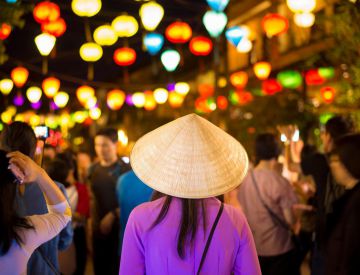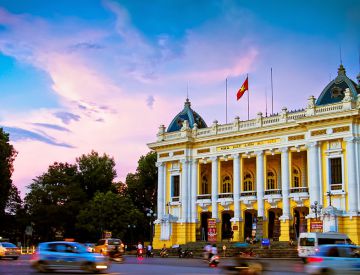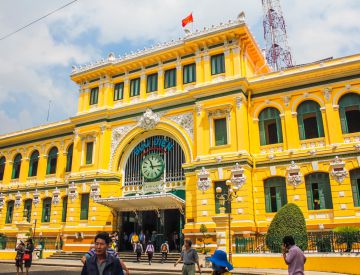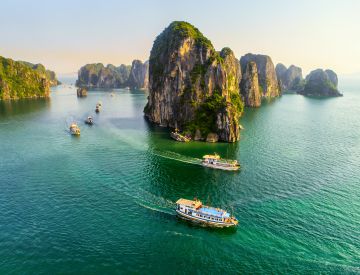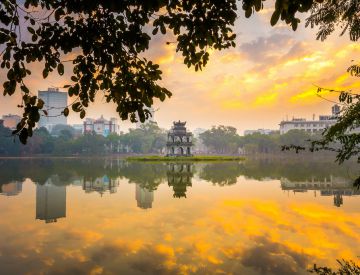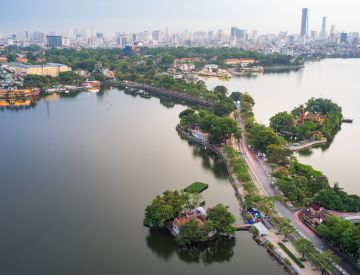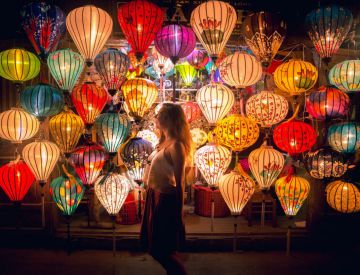Public holidays in Vietnam are regulated by the Ministry of Foreign Affairs-Hanoi and the newly-amended Labour Code of the Socialist Republic of Vietnam. According to Vietnamese labour laws, if a recognised public holiday falls on a Saturday or Sunday, the following Monday is observed as a paid holiday.
If your travel dates fall on Vietnam’s Public Holiday, you should book everything in advance. The large number of Vietnamese traveling home for the holidays and back to work after holidays makes finding space on buses, trains, and planes very difficult. The expenses for transportation will be raised highly. Especially Tet holiday, businesses and museums close. The traffic is very busy around 10 days before and after Tet holiday.
Date | English Name | Remarks |
January 1 | New Year's Day | |
From last day of the last lunar month to 5th day of the first lunar month - extra days around the offical dates. | Tet (Vietnamese New Year) | Largest holiday of the year, occurs around late January-early February |
10th day of the 3rd lunar month | Hung Kings Commemorations | New holiday since 2007, around April |
April 30 | Reunification Day | Liberation of Saigon and reunification of Vietnam in 1975 |
May 1 | International Labour Day | International Labour Day |
September 2 ( and 1 extra day on 1 Sept or 3 Sept) | National Day | Vietnam declares its independence, forming the Democratic Republic of Vietnam |
Swallow Travel would like to give you a list of some highlight festivals and events in Vietnam. Please note that the surcharge for your travel dates will be on public holidays and consecutive Saturday & Sunday.
NEW YEAR
The night of 31 Dec and 1 Jan every year
Place: Whole Vietnam, best places to enjoy are big cities.
Most of the festivals, anniversaries and traditional cultural events of Vietnam are in accordance with its lunar calendar; however, nowadays, Christian calendar is widely used throughout the country. Annually, on the first day in this Western Calendar - January 1st, joining in the modern breathes of the world, Vietnam also celebrates the International New Year Day. It’s a public holiday in Vietnam
The International New Year Day brings people a good opportunity to go out, meet others and participate on exciting trips as well. Also on the holiday, related special programs would be broadcasted on local as well as national channels, and countdown parties would be taken place at places like Opera House or major avenues.
TET FESTIVAL
Time: 1 – 2 weeks around the first day of Lunar Year (late January – early February)
Place: Whole Vietnam, best places to enjoy are big cities.
Tet, or Lunar New Year, is the most important celebration in Vietnamese culture and a major holiday across the country. Although the New Year date is February 12, the days leading up to Tet as well as the days following it are considered national holidays. Vietnamese prepare for Tet by cooking specific New Year foods, cleaning out their homes, buying new clothing, and paying respects to their ancestors. Flowering trees are placed outside every home and office, and a feeling of excitement and cheer envelops the entire country. On the very first day of Tet, children will receive a red envelope containing lucky money from elders.
People from all over the country will return to their hometowns for the Tet holiday, creating heavy demand for bus, train and plane tickets, as well as hotel rooms. With many staffs gone home to their families, businesses and restaurants typically shut for at least the first few days of Tet. Expect cities to be quiet during this time, as well as limited dining and shopping options. We highly recommend you book your holiday in advance if you travel in this period.
DEATH ANNIVERSARY OF THE HUNG KINGS
Time: the 8th to the 11th day of the third lunar month
Place: Phu Tho Province
Every year, a large number of visitors from all over the country participate in a national festival – Hung King Temple Festival – an incense offering ceremony in honor of Hung Kings, who were instrumental in the founding of the nation. The main festival day is on the 10th day of the third lunar March, on which the National Assembly has approved Vietnamese working people to annually have one more national holiday to mark the anniversary of the Hung King’s death.
REUNIFICATION DAY
Time: April 30th
In the history of Vietnam, April 30th, 1975 is the day that marks the ending the Vietnam War and leading to the liberation of Vietnam's southern part. Every year since, the country celebrates this day as a commemoration to the reunification between the Democratic Republic of Vietnam in the North and the Republic of Vietnam in the South into the Socialist Republic of Vietnam as we know today. Over a week prior to April 30th, streets in big cities like
Hanoi,
Hue,
Da Nang and
Ho Chi Minh City are eye-catchingly decorated with colorful banners, flags and neon lights. Also, celebration areas are prepared—it could be a place for parade, or the stage for a national live show.
Also, the next day is International Labor Day (May 1st), it becomes one of the biggest public holiday in the country. If you have any plan to travel in this period, we highly recommend you book your holiday in advance.
INTERNATIONAL LABOUR DAY
Time: May 1st
Together with more than 80 countries all over the world, the International Workers' Day, as known as International Labor Day or May Day in Vietnam, is a public holiday of the nation. It is celebrated on the first day of May, right after the Reunification Day; as a result, the two holidays are normally joined together into one break. In some special years when both of these days fall on weekends (Saturdays and Sundays), people will be off from work for four consecutive days.
NATIONAL DAY
Time: September 2nd ( and 1 extra day on 1 Sept or 3 Sept)
To any country, Independence Day is an important historical, political or cultural event associated with its current status. In most nations, this holiday originally leads to the birth of the country. Similarly in Vietnam, the origin of this day tracks back to the year of 1945. On September 2nd, thousands of people gathered at Ba Dinh Square, Hanoi to listen to the Declaration of Independence read by Ho Chi Minh, the first President of Vietnam, which officially stated that Vietnam was free from French’s colonial force. From that moment on, every year is the same as Vietnamese people have been always celebrating this meaningful occasion. In addition, this special event aims at commemorating the Independence of Vietnam after hundred years under France’s colonization. There are a wide range of activities can be found in the Independence Day of Vietnam: fireworks are shot in the sky, marches are organized on streets, and so on. Among residents, many individuals make good use of their day off by taking a shot journey somewhere nearby or by visiting Ho Chi Minh Mausoleum or Ba Dinh Square in order to ponder over the historical event taking place years ago.
.png)
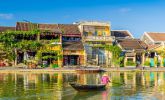
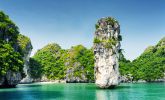



.png)
